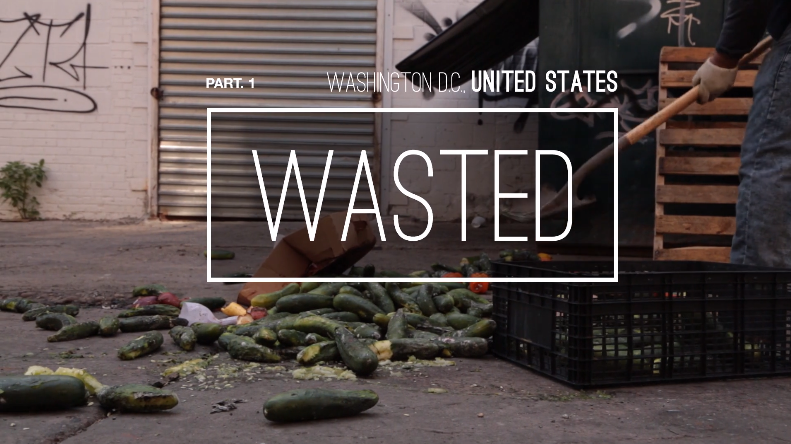
See the film at Yale Environment 360 here.
A glaring paradox of the U.S. food system is that while no country produces food as efficiently, no country wastes as much. Every year, 30 to 40 percent of what is grown and raised in the United States is thrown away or rots between farms and kitchens. That's a startling 133 billion pounds of food — more than enough to feed the 800 million people worldwide who face hunger every day.
In this Yale Environment 360 video, we present the first of a two-part e360 series, "Wasted," on the vexing global problem of food waste. Filmmaker Karim Chrobog visits two cities — Washington, D.C., and Seoul, South Korea — to examine why so much food goes to waste and what can be done about it. Washington, and the U.S. as a whole, has taken only minor steps to reduce this enormous waste and its related human and environmental costs. By contrast, Seoul has adopted innovative programs to minimize the amount of food that ends up going to landfills to rot.
This U.S. video explores the various links in the food chain in the Washington, D.C., area, including organizations working to cut down on food waste. Chrobog speaks with people in the trenches of this food fight, such as workers at the D.C. Central Kitchen, which collects healthy food that otherwise would be discarded and uses it to help provide 5,000 free meals a day to the needy.
The environmental impact of our wastefulness is extraordinarily high, considering the huge amount of fuel, fertilizer, pesticides, and other resources needed to grow and transport food. And when it is dumped in landfills, decaying garbage releases vast amounts of methane. If global food waste were a country, it would rank third in terms of greenhouse gas emissions.
The bounty most people in the U.S. enjoy has given rise to a culture of waste. "I think if you really dig down to what's going on here," one expert tells Chrobog, "it's that people don't value their food."

Education Resource
Meet the Journalist: Karim Chrobog
Pulitzer Center grantee Karim Chrobog traveled to Seoul, South Korea where he reported on the...




